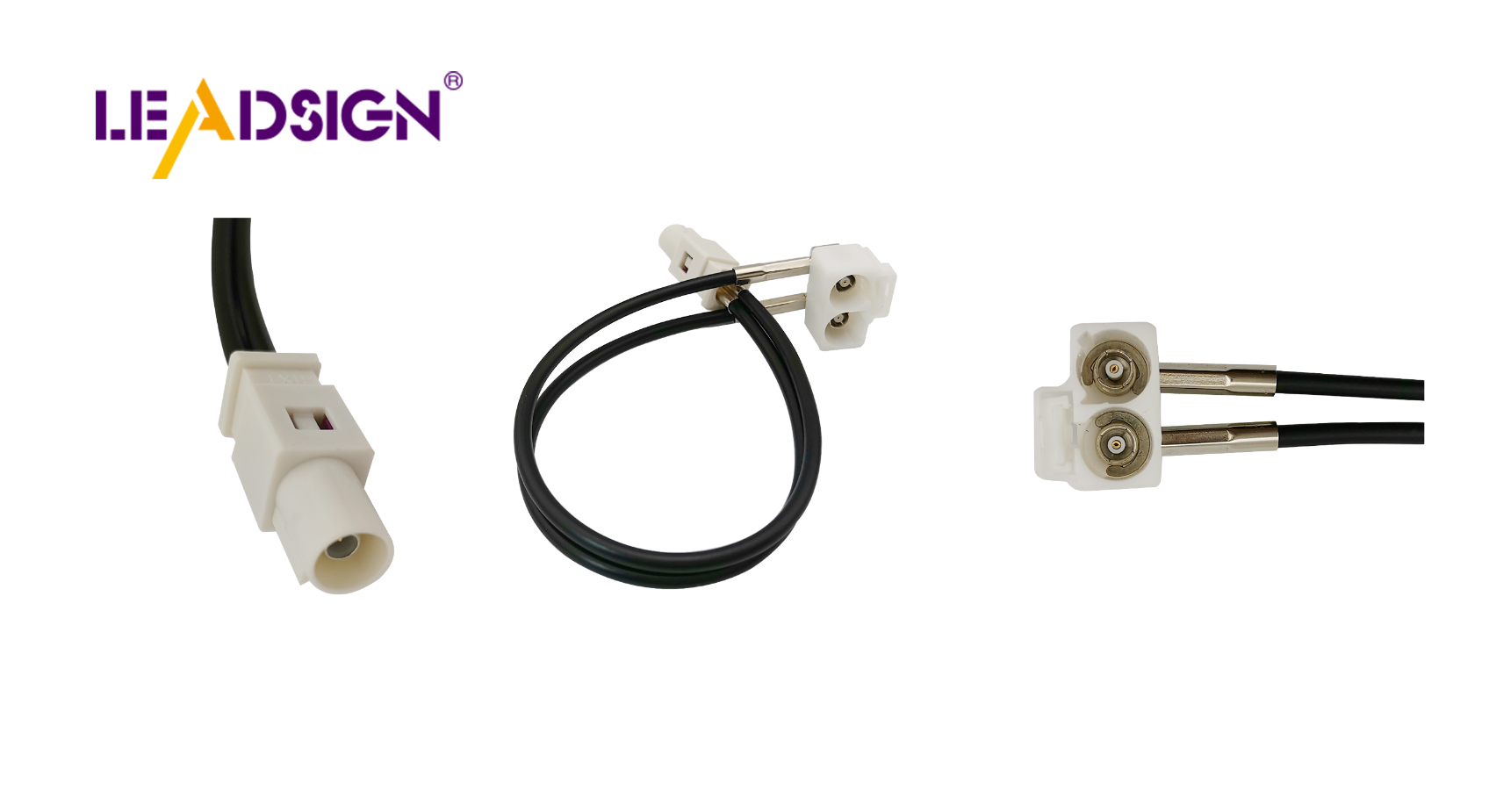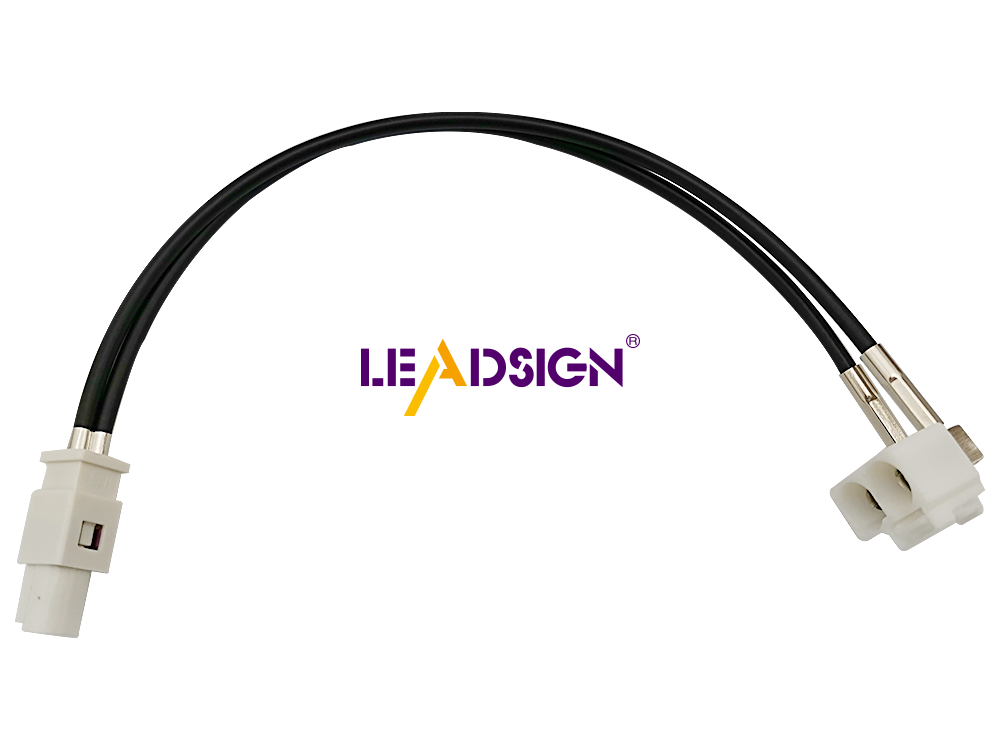Understanding Copper and Aluminum Wiring for 2 Pin Automotive Electrical Connectors

When picking car wiring wire for connectors, you have a big choice. The right wire keeps your car safe and working well. Copper and aluminum are the main options. Copper is great for carrying electricity and is often used in car wiring wire, especially in electric cars. It is strong and dependable. Aluminum is cheaper and lighter, making it good for cars where weight matters. Knowing about these materials helps you choose the best for your car needs.
Key Takeaways
Copper wiring is highly efficient for electricity conduction, making it ideal for high-power automotive applications.
Aluminum wiring is a cost-effective alternative, offering significant weight savings that can enhance vehicle performance and fuel efficiency.
When choosing wiring, consider the balance between conductivity, weight, cost, and durability to meet your specific automotive needs.
Copper's strength and durability make it a long-term investment, reducing the likelihood of repairs and electrical issues.
Aluminum's lightweight nature is beneficial for modern car designs, especially in electric and hybrid vehicles where weight reduction is crucial.
Proper installation and maintenance are essential for aluminum wiring to prevent issues related to thermal expansion and corrosion.
Both copper and aluminum have unique advantages; selecting the right one depends on your priorities for performance, budget, and vehicle design.
Important Features of Copper Wiring
Copper wiring is popular in cars because of its great key characteristics. Knowing these helps you choose the right wires for your car.
Conducting Electricity
Copper wiring is very good at carrying electricity. It sends power well, so it's often used in cars. This means your car parts get the power they need without losing much energy. Copper carries electricity better than aluminum of the same size. So, copper can handle more power without getting too hot. This is important for keeping your car safe and working well.
Strength and Bendability
Copper wiring is strong and can bend easily. These characteristics make it last long and work well in cars. Copper's strength lets it handle stress without breaking, keeping connections strong. Its bendability helps it fit in small spaces, which is needed in car wiring. Copper wiring stays good even in tough situations.
Price
Copper wiring has many good points, but it costs more. Copper is pricier than aluminum. But its great electrical conductivity and strength make it worth the cost. For long-term use, copper wiring is a smart choice. It cuts down on repair costs and stops electrical problems, making it a good buy for your car.
Durability
Copper wiring is very strong for cars. It doesn't rust easily, so it lasts longer. This means it stays good even in wet or salty places. Copper wiring can handle bumps and shakes in cars. It doesn't break down quickly. This makes it a good choice for keeping car parts working well. Copper wiring is needed more now because of electric cars. It helps in car batteries and motors. Copper is important for new car designs.
Key Characteristics of Aluminum Wiring

Aluminum wiring has special benefits for cars. Knowing these characteristics helps you pick the right wires for your car.
Electrical Conductivity
Aluminum wiring carries electricity well, but not as well as copper. It works fine for many car uses. Copper is better for top conductivity, but aluminum is okay for less tough jobs. This makes it a good choice when you need to balance performance and other things.
Weight and Flexibility
Aluminum wiring is very light. In car design, cutting weight helps with fuel use and performance. Aluminum is much lighter than copper, saving a lot of weight in a car's wires. This weight cut helps the car move better. Also, aluminum bends easily, fitting into tight spots, making it easy to install.
Cost
Aluminum wiring is cheaper for cars. It costs less than copper, which is good if money is tight. Picking aluminum lets you balance performance and cost. This cost-effective feature makes aluminum wiring popular in many car designs, especially when weight and budget matter.
Durability
Aluminum wiring is strong and lasts long in cars. It is good for cars where weight and cost matter. It works well in different weather, making it last longer.
Corrosion Resistance: Aluminum wiring does not rust easily. This keeps it working well even in wet or salty places. This is important for your car's electrical parts to stay reliable.
Thermal Expansion: Aluminum wiring expands more with heat than copper. This can make connections loose, but good setup can fix this. Keeping connections tight helps aluminum wiring last in your car.
Lightweight Nature: Aluminum wiring is light. This helps make the car lighter and stronger. It reduces stress on the car, helping it last longer.
Growing Demand: More cars need strong materials like aluminum wiring. As electric and self-driving cars grow, the need for light, strong wiring increases. This shows why aluminum wiring is important in new cars.
Cost-Effectiveness: Aluminum wiring is cheap and strong. It is a good choice for makers and buyers. You get a strong product at a good price.
Comparing Copper and Aluminum Wiring
When choosing wiring for your car, know the good and bad of copper and aluminum. Each has special pros and cons that affect how they work, cost, and last.
Good and Bad in Cars
Copper Wiring:
Good Points:
Efficiency: Copper is great at sending electricity. It's perfect for high-power needs. It sends power well, losing less energy.
Durability: Copper doesn't rust easily, so it lasts long and works well.
Strength: Copper is strong and handles stress, keeping connections tight.
Flexibility: Copper bends easily, fitting into small spaces in cars.
Bad Points:
Cost: Copper costs more, raising setup costs. But it might save money later with less fixing needed.
Weight: Copper is heavy, which can lower car efficiency, especially if weight matters.
Aluminum Wiring:
Good Points:
Cost: Aluminum is cheaper, good for saving money.
Weight: It's light, helping cars use less fuel and perform better.
Durability: New aluminum is tough, handling hits and weather well.
Bad Points:
Efficiency: Aluminum doesn't send power as well as copper, which can be a problem for high-power needs.
Heat Expansion: Aluminum grows with heat, which can loosen connections. Good setup helps fix this.
Corrosion: Aluminum can corrode with other metals, affecting long-term costs.
Best for 2 Pin Connectors
For 2 pin car connectors, both copper and aluminum have good points. Copper sends electricity better, great for high-power needs. It lasts long, needing fewer changes.
Aluminum saves money and cuts weight, good for budget and efficiency. Its lightness helps cars perform better, especially electric and hybrid ones.
Copper and aluminum wires are both good for cars. Copper is great for performance. It carries electricity well and lasts long. Use copper when you need strong and reliable wires. Aluminum is light and cheap. It's good when you need to make the car lighter. Pick aluminum to save money and improve efficiency. As cars change, both copper and aluminum will help improve car performance.
FAQ
What are the main differences between copper and aluminum wiring?
Copper and aluminum wires are not the same. Copper carries electricity better, so it's good for strong power needs. Aluminum is lighter and costs less. It can be up to 48% lighter than copper, which helps when weight is important in cars.
Why is copper considered a better conductor than aluminum?
Copper carries more electricity without getting too hot. This makes it great for places needing strong electricity. Aluminum is about 50% less good at carrying electricity, so bigger wires are needed to work the same.
How does the weight of aluminum wiring benefit automotive applications?
Aluminum wires are light, making cars weigh less. This helps cars use less fuel and work better. Changing from copper to aluminum can make wires over 40% lighter, which is big for car design.
Are there any risks associated with using aluminum wiring?
Yes, aluminum wires can have problems. They expand more with heat, which can loosen connections. Also, if aluminum touches copper, it can rust. Good setup and care can help stop these problems.
Is aluminum wiring more cost-effective than copper?
Aluminum wires usually cost less because the material is cheaper. This is good for projects with tight budgets. But think about long-term costs, as copper might need fewer fixes and changes.
Can aluminum wiring replace copper in all automotive applications?
Aluminum wires work for many things, but not all. Copper is better for strong power and important systems. Aluminum is best where saving weight and money is key.
How does the durability of copper compare to aluminum?
Copper is stronger than aluminum. It doesn't rust easily and stays strong under stress. This makes copper a good choice for tough places. Aluminum is strong too but might need more checks and care.
What should I consider when choosing between copper and aluminum wiring for my vehicle?
Think about conductivity, weight, cost, and durability. Copper is best for strong needs. Aluminum is good for saving weight and money. Look at what you need to pick the best one.
How does the thermal expansion of aluminum affect its use in vehicles?
Aluminum grows more with heat, which can loosen connections. Good setup and right connectors help keep connections tight and safe.
Are there any advancements in wiring materials that combine the benefits of both copper and aluminum?
Yes, copper-clad aluminum wires mix both materials. They carry electricity like copper and are light like aluminum. They work well in cars where both power and weight matter.
See Also
Understanding HSD Connectors Essential for Automotive Applications
Significance of HSD Connectors in Automotive Engineering
Crucial Role of FAKRA Connectors in Automotive Systems

